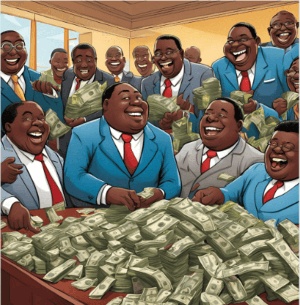Business News of Wednesday, 6 November 2024
Source: www.ghanaweb.live
2024-11-06Ghana’s inflation reaches four-month high, impacting rate cut outlook
 Ghana’s inflation reaches four-month high, impacting rate cut outlook
Ghana’s inflation reaches four-month high, impacting rate cut outlook
Ghanaian
Ghana’s inflation rate rose sharply in October, reaching 22.1%, which represents the highest level since June and poses a challenge to the Bank of Ghana’s recent interest-rate reduction strategy.
This increase from September’s rate of 21.5% was confirmed by Government Statistician Samuel Kobina Annim in a statement delivered in Accra.
Analysts speculate that the central bank, which
Read full articlerecently cut the key lending rate to 27% in September, may now hesitate to ease monetary policy further, especially with the U.S. Federal Reserve signaling a slower approach to rate reductions.
Mark Bohlund, a senior analyst at REDD Intelligence, noted that the Bank of Ghana may need to rethink its rate-cutting plans to control inflation more effectively.
The central bank’s goal was to bring inflation closer to 18% by the end of 2024, but the surge in consumer prices is now casting doubt on that target.
The latest data show that the acceleration in inflation was mainly driven by rising food costs, which reached an annualized rate of 22.8% in October, up from 22.1% in the previous month.
Within this category, specific food items saw dramatic price increases, including a 72.9% rise in egg prices and a staggering 91.8% jump in dried pepper prices. Non-food inflation also rose to 21.5%, adding further pressure on Ghanaian households as living expenses continue to climb.
Compounding the issue, the Ghanaian cedi has weakened, hitting a record low of 16.4 cedis per U.S. dollar, marking a 0.2% drop in early trading in Accra. The cedi’s depreciation is exacerbated by the strengthening dollar following the re-election of Donald Trump as U.S. President. The exchange rate decline adds to Ghana’s inflationary pressures, as the cost of imports rises along with the exchange rate.
The timing of this economic turbulence is significant as Ghana approaches its presidential election on December 7. The economic strain has heightened political tensions, with incumbent Vice President Mahamudu Bawumia, the candidate of the ruling New Patriotic Party (NPP), facing criticism over the government’s handling of the economy.
Former President John Dramani Mahama, representing the opposition National Democratic Congress (NDC), has positioned himself as a strong contender. The recent rise in inflation, combined with the depreciation of the cedi and high living costs, has fueled public frustration and could impact voter sentiment.
Many analysts believe that Mahama, who has been vocal about the economic challenges facing ordinary Ghanaians, may benefit politically from these economic pressures as he appeals to citizens weary of the current government’s policies.
With the final monetary policy meeting of 2024 scheduled just days before the election, the Bank of Ghana’s rate decision will be closely watched as it may influence both economic stability and electoral outcomes.











